Taking Stock of the Block
1 June 2011
After documentation, the next step was to take stock of the overall condition of the block, and to make a preliminary inventory of the types of archaeological materials I could see.
As can be seen in the birds-eye-view photograph, there are some large cracks running across the block: these most likely occurred during lifting and transportation from the site to the museum. Unfortunately, these extend through some of the exposed armour, and areas of thin, mineralized iron plate have broken. This kind of damage, whilst regrettable, couldn’t have been avoided.
I wanted to keep the broken pieces in place for as long as possible, as the positioning of the remains is important to our interpretation of the events taking place in these two rooms of the warehouse. In order to ensure that fragments stayed together (at least for the interim) I used a wax-like substance called Cyclododecane, which I melted and brushed onto the artefacts. The Cyclododecane will eventually sublime altogether, and so I will not have to remove it later.
In addition to the iron plates, there are also a range of other interesting artefacts visible on the surface of the block. There appears to be a scattering of copper alloy scale armour (see photograph for an example), which would also have been worn by a soldier.
At the edge of the block is a large copper alloy stud, its use in antiquity currently unknown: it is not an artefact which has been associated with lorica segmentata. As the photograph shows, the copper has corroded considerably and is very thin.
Scattered amongst these exciting finds are the usual types of artefacts found during archaeological excavations: pieces of red ceramic tile, fragments of pottery, bits of animal bone, and crumbly lumps of white plaster (from the building itself).
Excavating the block will be both time consuming and challenging: I have selected a number of small tools to use. I am unable to place a microscope over the block, and so will be using an optimizer (a visor with magnification lenses) instead- I do not want to miss any small artefacts or details during the excavation.
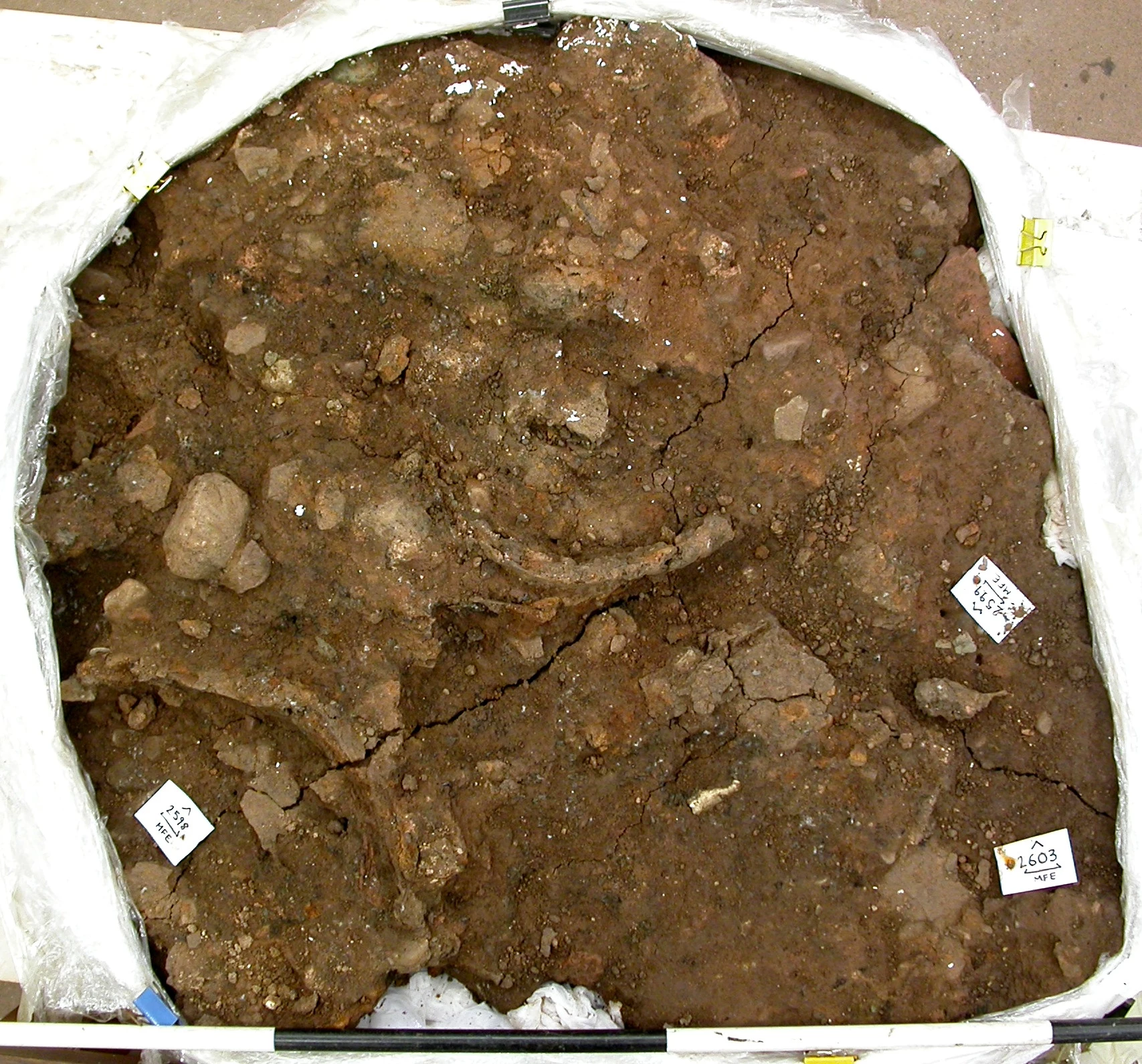
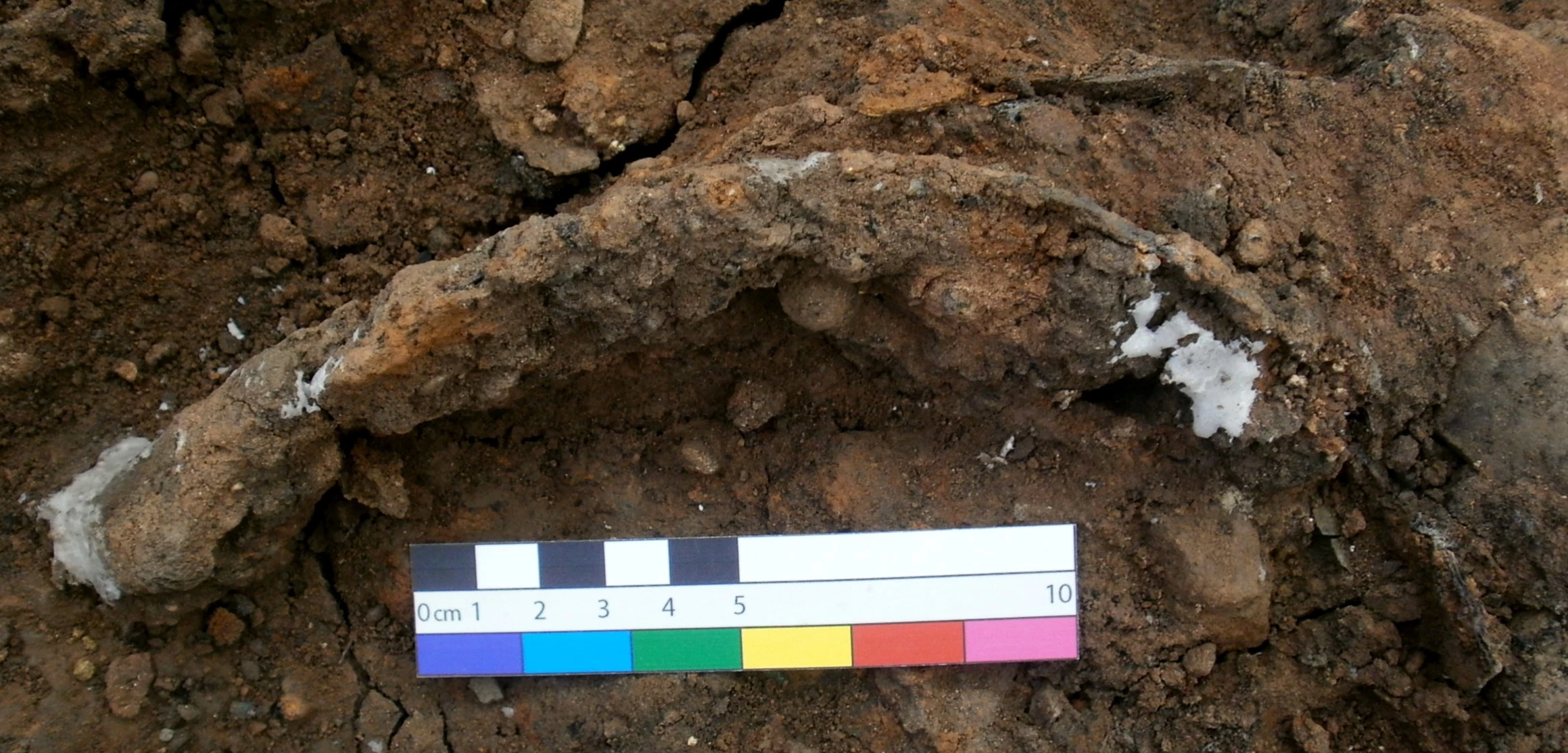
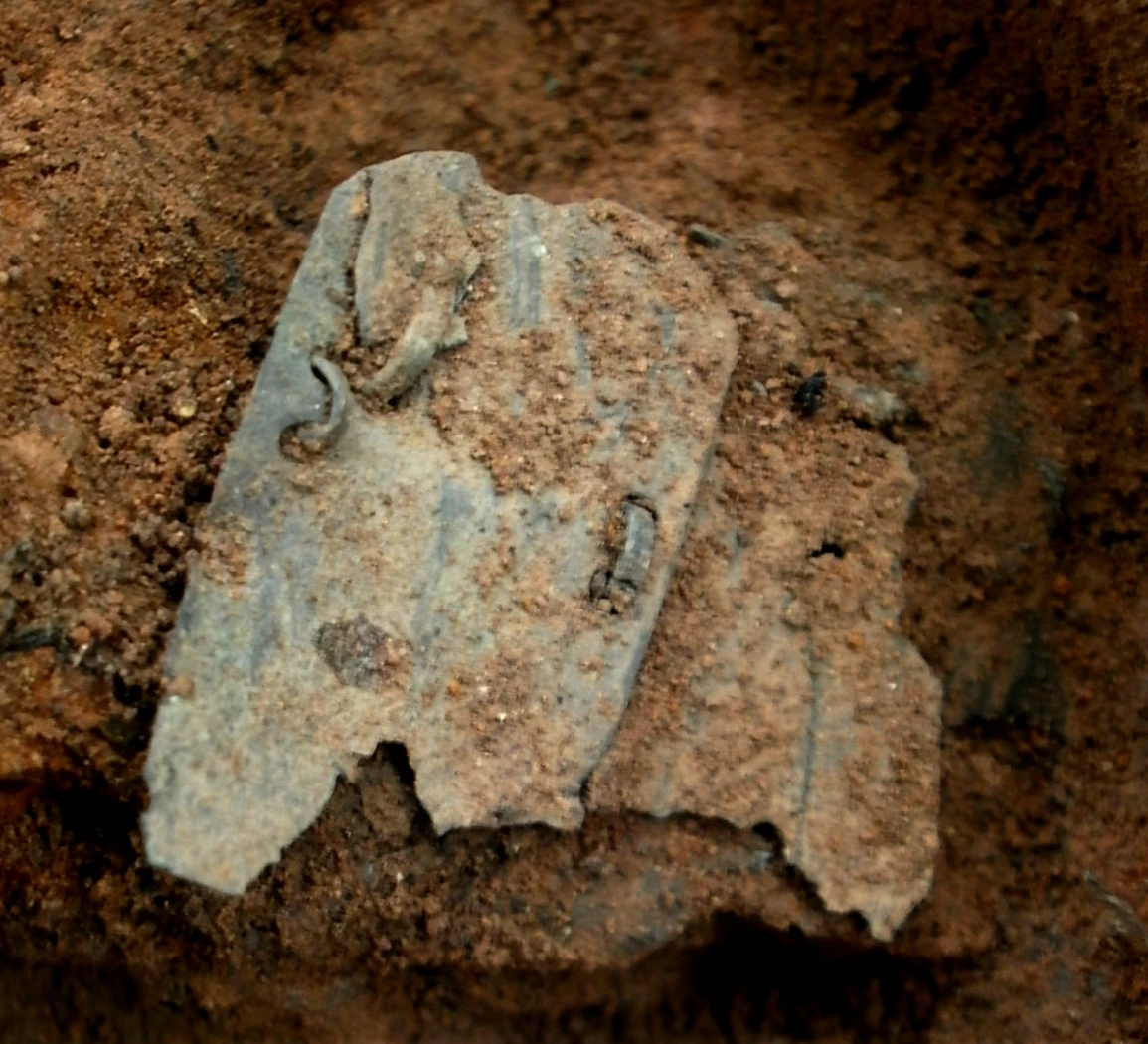
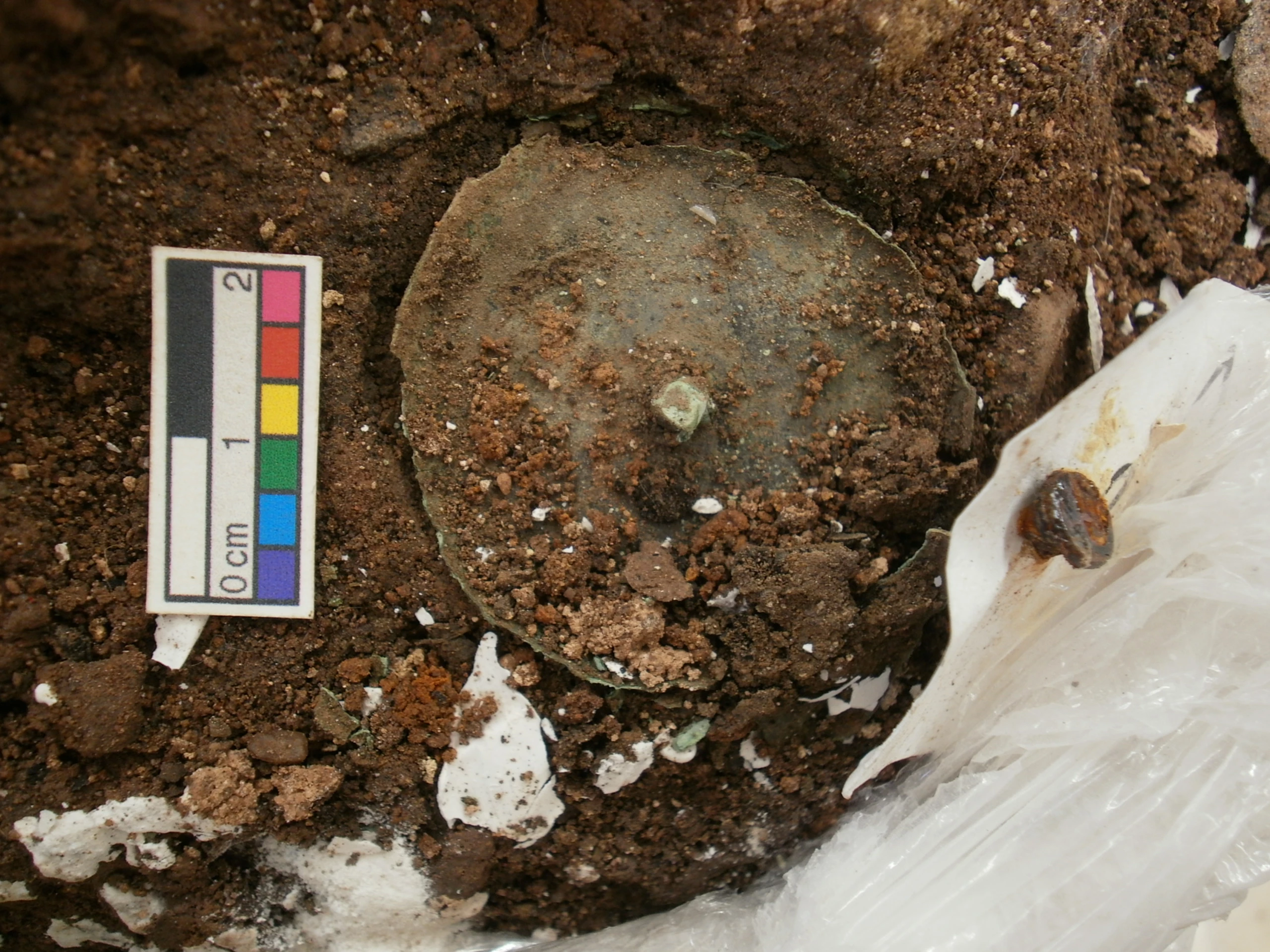
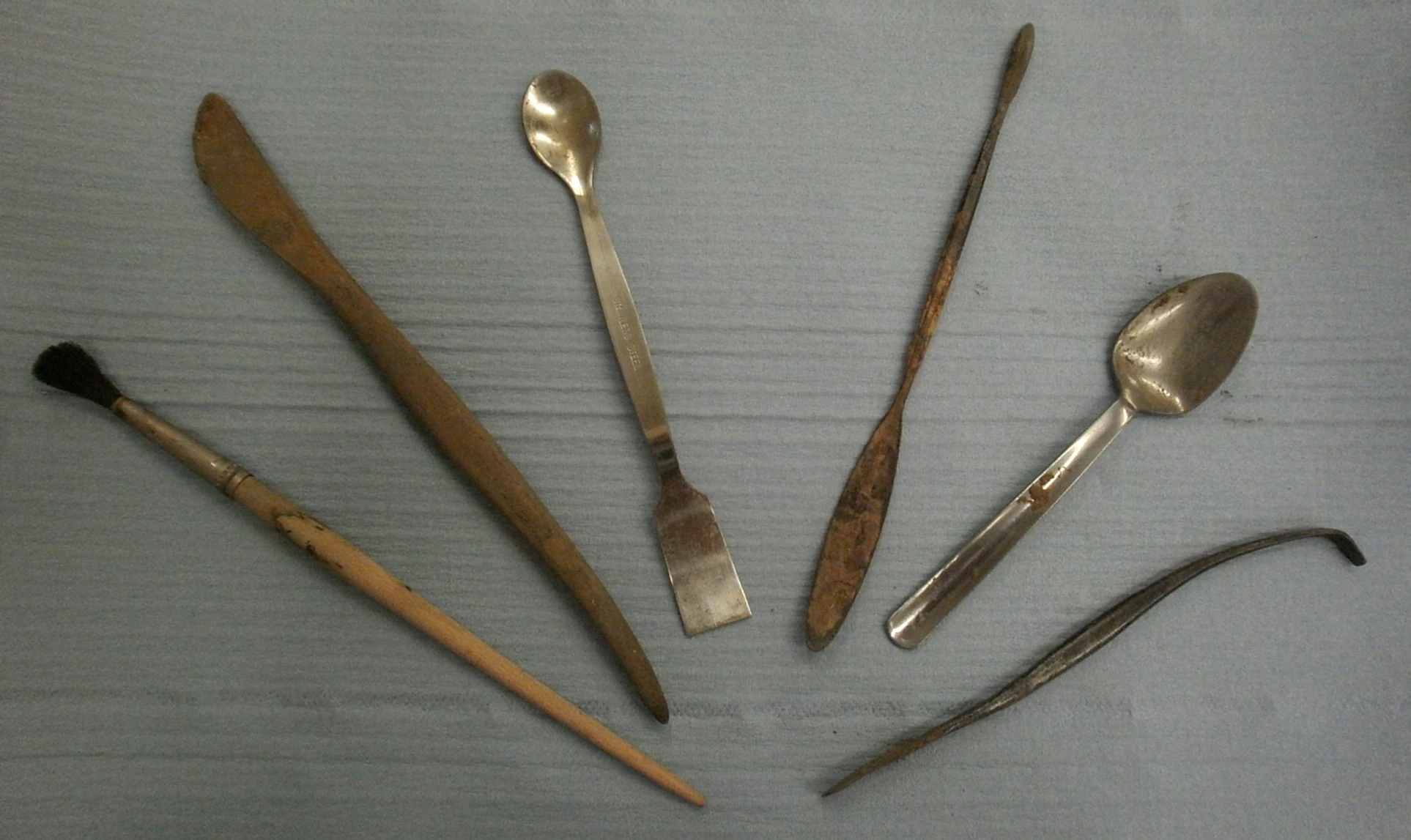
Comments - (2)